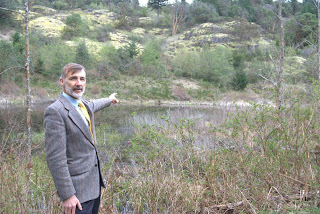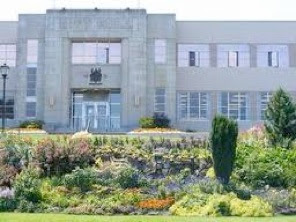We CAN save Linley valley and other valued areas
 |
| One Linley Valley pond -soon to be lost? |
The area pictured here,
complete with a beaver dam -yet tucked out of sight- will be destroyed by a
proposed housing development this year. Public opposition to the plan is
fierce.
Yet the land is privately
owned, and the city says it cannot afford to buy it. Competing interests are at
work here: tax-payers money, company profit, recreational opportunities, and the future of the beavers and
the many others that call this valley home.
There are a number of ways
that all these interests can be satisfied. Provincial subsidies of the oil and
gas industry (about $350 million each year) could instead be used to buy
valuable urban spaces such as Linley Valley and the Colliery dams.
Nanaimo is not alone is its concerns about lost urban green spaces. As populations increase pressure only grows on what remains of park-land like areas. Yet green spaces are proven to improve our health and attract companies, amongst other benefits.
Some ingenious solutions have
also been proposed by Calvin Sanborn of the Environmental Law Centre at the
University of Victoria. Park-land acquisition could be funded through such
measures as using un-claimed pop bottle refund deposits, having governments match
land trust donations, and making it easy to donate to such important green spaces by
one's will. Read more about his excellent ideas in this recent Tyee edition.
I agree: The province
urgently needs to create a province-wide greenways initiative.
The Green Party and I propose
another solution. Make the present carbon tax function as it is intended: tax
what is "bad" (pollution, greenhouse gases) and give those funds to
what is "good" (robust public transportation, R&D of renewable
energy such as tidal energy, dedicated bicycle paths, building of local farmers
markets, incentives to building-owners to reduce energy consumption, and
purchasing valuable land such as this. The net result of a true carbon tax is
profits for clean companies, better air and water quality, better food, greater
self-sufficiency, better health outcomes for people and wildlife, more local
business, and parkland that attracts businesses and tourists to a beautiful
city.
The
Linley Valley group's Facebook page can be found by clicking here.



Comments
Post a Comment
Thank you for commenting on this post. Your comment will be moderated before being posted in order to remove spammers.